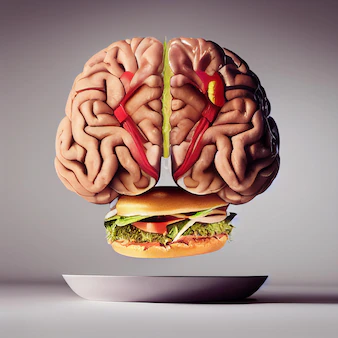Your Brain and Overeating

Overeating is a common issue for many people, and it can lead to weight gain, obesity, and a range of health problems. However, there are many factors that contribute to overeating, and it’s not always easy to control. One of the key factors in overeating is the brain.
The brain plays a major role in regulating food intake and appetite. There are several hormones and neurotransmitters that help control appetite and hunger, including leptin, ghrelin, and dopamine. When these hormones are out of balance, it can lead to overeating and weight gain.
Leptin is a hormone that is produced by fat cells and signals the brain to stop eating when you are full. However, people who are overweight or obese may become resistant to leptin, and their brains may not receive the signal to stop eating.
Ghrelin is a hormone that stimulates hunger and appetite. When ghrelin levels are high, people tend to feel hungry and may be more likely to overeat.
Dopamine is a neurotransmitter that is associated with pleasure and reward. When we eat foods that are high in sugar, fat, or salt, it can trigger a release of dopamine in the brain, which can create a feeling of pleasure and reward. This can lead to overeating and cravings for unhealthy foods.
There are several strategies that can help control overeating by targeting the brain. These include:
- Eating a diet that is rich in fiber and protein, which can help control hunger and promote feelings of fullness.
- Avoiding foods that are high in sugar, fat, and salt, which can trigger cravings and overeating.
- Getting regular exercise, which can help regulate hormones and neurotransmitters that control appetite.
- Managing stress, which can lead to emotional eating and overeating.
- Practicing mindful eating, which involves paying attention to your food and eating slowly, can help you enjoy your food more and be more in tune with your body’s signals of hunger and fullness.
Overall, overeating is a complex issue, and there is no one-size-fits-all solution. However, by understanding how the brain plays a role in appetite and food intake, you can develop strategies to help control overeating and promote a healthier relationship with food.
